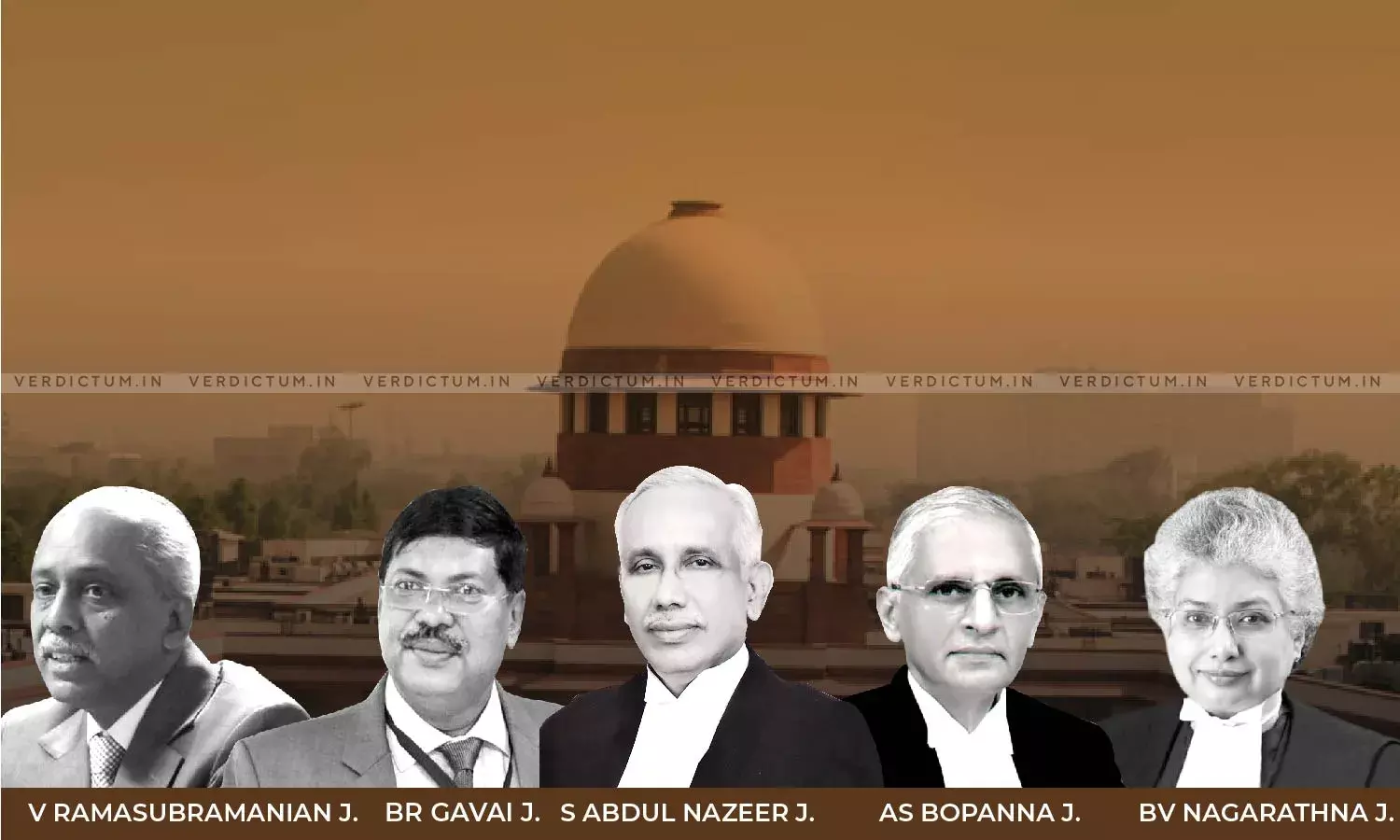Plea Against Demonetisation: SC's Constitution Bench To Pronounce Verdict On January 2, 2023

The Supreme Court is scheduled to pronounce its judgment on January 2 on a batch of pleas challenging the Government's 2016 decision to demonetize currency notes of Rs 1,000 and Rs 500 denominations.
A five-judge Constitution bench headed by Justice S. Abdul Nazeer, who will retire on January 4, is likely to pronounce its verdict on the matter on the said date.
The top court had, on December 7, directed the Centre and the Reserve Bank of India (RBI) to put on record the relevant records relating to the government's 2016 decision and reserved its verdict.
The bench, also comprising Justice B R Gavai, Justice A S Bopanna, Justice V Ramasubramanian, and Justice B V Nagarathna had heard the submissions of Attorney General R Venkataramani, the RBI's counsel, and the petitioners' lawyers, including Senior Advocates P Chidambaram and Shyam Divan.
Calling the scrapping of the Rs 500 and Rs 1,000 currency notes deeply flawed, Chidambaram had argued that the government cannot on its own initiate any proposal relating to legal tender, which can only be done on the recommendation of the RBI's central board.
Resisting the apex court's attempt to revisit the 2016 demonetisation exercise, the government had said the court cannot decide a matter when no tangible relief can be granted by way of "putting the clock back" and "unscrambling a scrambled egg".
The RBI had earlier admitted in its submissions that there were "temporary hardships" and that those too are an integral part of the nation-building process, but there was a mechanism by which the problems that arose were solved.
In an affidavit, the Centre told the top court recently that the demonetisation exercise was a "well-considered" decision and part of a larger strategy to combat the menace of fake money, terror financing, black money, and tax evasion.
The Supreme Court was hearing a batch of 58 petitions challenging the demonetisation exercise announced by the Centre on November 8, 2016.
With PTI Inputs

